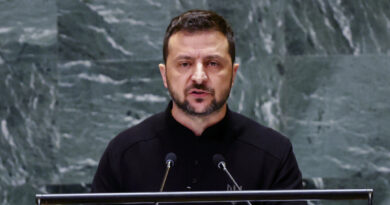Court Affirms COVID-19 Vaccine Mandate for WA Police, Disciplinary Measures Imminent
The Supreme Court of Appeal has upheld the dismissal of an appeal against the vaccine mandate.
Disciplinary action will continue against Western Australian (WA) police personnel who refused to comply with the vaccine mandate after a court ruling.
This decision comes after the WA Supreme Court of Appeal rejected Senior Constable Ben Falconer and staff member Leslie Finlay’s appeal against a COVID-19 vaccine mandate.
A spokesperson from WA Police confirmed to the Epoch Times that multiple police officers and staff will face disciplinary action.
“The appeal by Falconer and Finlay against the WA Police Commissioner’s vaccine directive has been dismissed,” a spokesperson for WA Police informed the Epoch Times.
“The court upheld the validity of the vaccine mandate for police officers and staff.”
“Disciplinary action will resume against 12 police officers and 5 police staff.”
Reasons Behind the Judgement
The court assessed whether the WA Police Commissioner’s vaccine mandate infringed on bodily integrity rights and if the commissioner had the authority to issue the directive.
The majority of the court determined that the directive “infringed the right to bodily integrity” concerning a sworn police officer like Mr. Falconer.
Additionally, the court found that the employer’s directive “did not violate bodily integrity rights” when applied to a police force employee like Mr. Finlay.
Moreover, the court concluded that section 202(3) of the Public Health Act did not invalidate the employer’s directive.
The court highlighted that the Police Commissioner’s directive was issued in response to the “extraordinary circumstances” of the COVID-19 pandemic.
“The employer’s directive was an exceptional measure taken in response to the unique circumstances at that time,” the court pointed out.
Regarding the appellants’ arguments on the commissioner’s powers under section 5 of the Police Act, the court acknowledged their importance despite dismissing their case on this ground.
However, Mr. Falconer and Ms. Finlay were not ordered to pay costs due to the exceptional nature of the appeals.
“These appeals are considered exceptional and warrant a departure from the standard practice of the unsuccessful party bearing the successful party’s costs,” stated the judgement.
After the outcome, Mr. Falconer shared his reflections on social media, urging people to ponder the implications of the judgement.
“This legal battle aimed to clarify the rights of WA employees regarding their bodies in the workplace,” he mentioned.
“The government and judiciary have taken a stance on this issue.”
Contrast with Victoria
Meanwhile, a senior constable in Victoria who faced charges for refusing the COVID-19 vaccine emerged victorious in the Supreme Court of Victoria.
In a win for the constable, Victorian Supreme Court Justice Michael McDonald deemed the charge unjust and quashed it.
“The failure to receive the vaccine did not breach the Victoria Police Manual,” Judge McDonald explained.
“Therefore, the plaintiff could not be reprimanded for a disciplinary breach.”
Judge McDonald pointed out that the plaintiff was denied procedural fairness for various reasons.
“The lack of adequate notice and failure to disclose crucial issues affected the plaintiff’s ability to defend himself,” Judge McDonald stated.
Following the victory, lawyer Irene Chrisopoulidis hailed the decision as a significant win for the plaintiff and affected individuals and families.
Additionally, it was found that the former Department of Health Director-General had not made the COVID-19 vaccine a condition of employment for Queensland Ambulance Service staff.
However, the ruling did not delve into the vaccine’s transmissibility or effectiveness.





